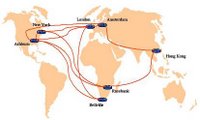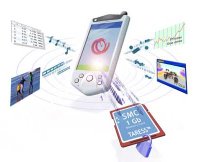 Reaching already Christmas and New Year’s time, while everybody rushes to big shopping malls to buy the last-minute presents, we can take a look to this news about a laptop that will be sold for 100$!
Reaching already Christmas and New Year’s time, while everybody rushes to big shopping malls to buy the last-minute presents, we can take a look to this news about a laptop that will be sold for 100$! As you can see in the article, they’re called the ‘green computer’, and it can be used as a normal laptop or as an electronic book. First models are expected to be manufactured in February. MIT and United Nations are supporting the project, and also several high tech companies showed interest on it. Some different questions come to my mind at this moment: after the manufacturing, how do you make that these laptops reach the places that need this? Is all this initiative just a tactic that some companies carry out to get people’s attention? Here comes the concept of Corporate Social Responsibility that refers to corporate activities that respond to their responsibility towards the society and how they can contribute to social actions based on their capabilities. So ho much commitment can we expect from all the organizations involved in this project?

















